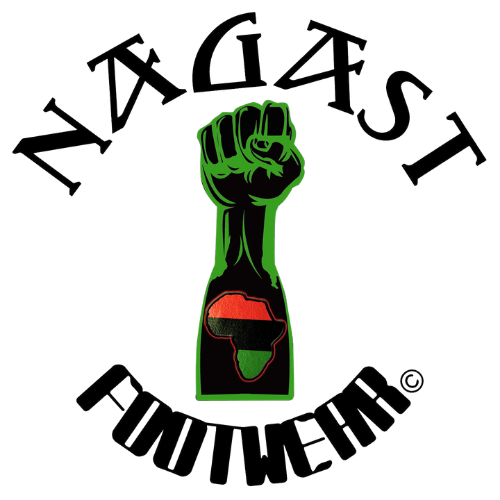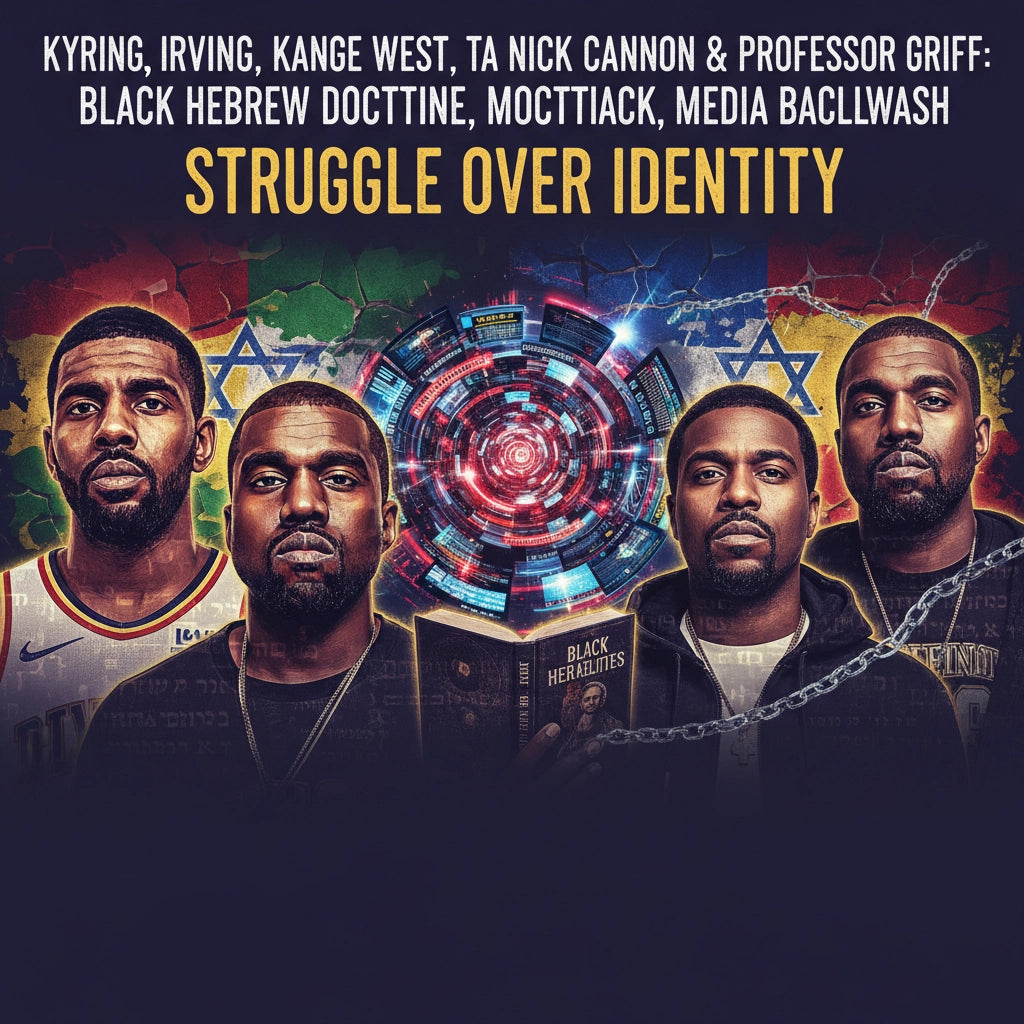
Kyrie Irving, Kanye West, Nick Cannon & Professor Griff: Black Hebrew Doctrine, Media Backlash, and the Struggle Over Identity
Share
When Kyrie Irving shared that documentary link, when Kanye went on his rants, when Nick Cannon had that conversation with Professor Griff: the mainstream media went into overdrive. But what's really happening here isn't just about celebrities saying controversial things. It's about a deeper struggle over identity, history, and who gets to tell our story.
The Search for Our True Identity
For centuries, our people have been searching for answers. Stripped from our homeland, separated from our languages, disconnected from our spiritual traditions: is it any wonder that some of us have turned to alternative narratives to make sense of who we are?
The Black Hebrew Israelite doctrine speaks to something deep in our collective consciousness. When you read Genesis 15:13: "Know for certain that for four hundred years your descendants will be strangers in a country not their own and that they will be enslaved and mistreated there": it's hard not to see parallels to our experience in America.
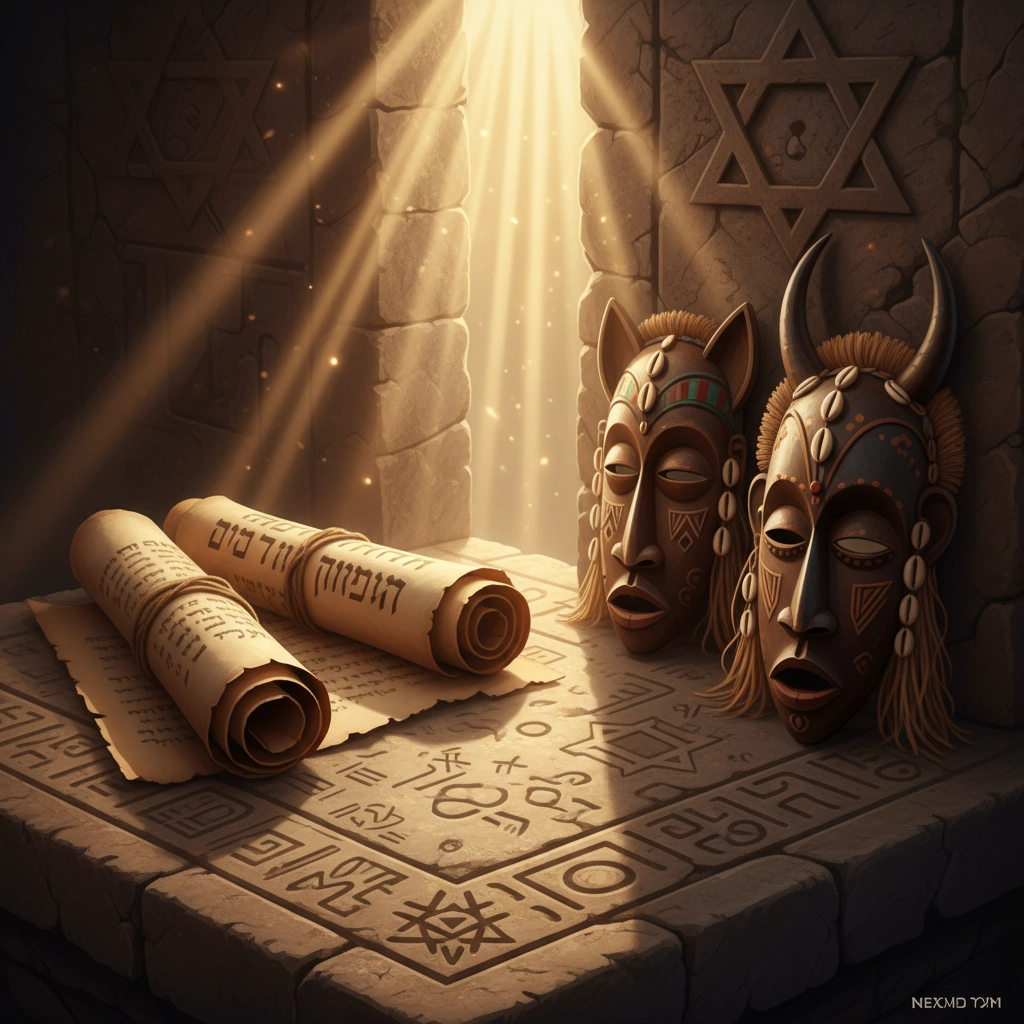
Then there's Deuteronomy 28:68: "The Lord will send you back in ships to Egypt on a journey I said you should never make again. There you will offer yourselves for sale to your enemies as male and female slaves, but no one will buy you." The imagery of ships, of being sold as slaves: these verses resonate with our historical experience in ways that can't be ignored.
When Celebrities Speak, the World Listens
Kyrie Irving's sharing of "Hebrews to Negroes: Wake Up Black America" wasn't just a random tweet. It was a man seeking answers about his identity and heritage. When the backlash came swift and severe: suspension from the Brooklyn Nets, loss of endorsements, public shaming: many in our community saw it as yet another example of what happens when we dare to question established narratives.
Kanye West, for all his controversial statements, was grappling with similar questions about identity. His claims about Black people being the true descendants of the biblical Israelites, while inflammatory in delivery, touched on legitimate questions about our history and heritage that have been debated in our communities for generations.
Nick Cannon's conversation with Professor Griff of Public Enemy opened up discussions that had been happening in barbershops and community centers for decades. When Cannon spoke about the melanin-rich being the true chosen people, he was expressing ideas that many in our community had been exploring privately.
Hip-Hop Voices on Heritage and Identity
Fam, hip-hop been preaching on this for years. When the news gets loud, the music keeps our memory straight:
- "I'm an Israelite, don't call me Black no more." — Kendrick Lamar, YAH. (2017)
- "Early natives, related to the thrones of David." — Killah Priest, One Step (1998)
- "Captured by some patriots then thrown on slave ships." — Killah Priest, One Step (1998)
- "I'm a African." — dead prez, I'm a African (2000)
These bars ain’t just rhymes—they’re receipts, protest, and a spiritual roll call. Same questions Kyrie, Ye, and Nick been wrestling with:
- Who are we really?
- What did they strip from us?
- What are we reclaiming—without hating anybody else?
The Response and What It Revealed
The intensity of the backlash revealed something significant. One Jewish commentator notably stated that young Black Americans represented the greatest threat to the future of Jewish people. This statement, while shocking, illuminated the fears that some hold about our awakening consciousness and our questioning of historical narratives.

The speed with which these Black celebrities faced professional consequences: lost contracts, public shaming, forced apologies: stood in stark contrast to how other forms of discrimination or controversial statements by non-Black public figures are often handled. This differential treatment didn't go unnoticed in our community.
Biblical Prophecy and Historical Reality
The verses often cited in Black Hebrew Israelite teachings aren't random selections. Genesis 15:13 speaks of 400 years of bondage in a strange land: a timeframe that aligns remarkably with our experience from the first arrival of enslaved Africans in 1619 to formal emancipation in the 1860s.
Deuteronomy 28 contains what are called the curses for disobedience, and many see striking parallels to the Black experience in America:
- Scattered among all nations (the diaspora)
- Becoming a byword and laughingstock (negative stereotypes)
- Oppression and robbery with no one to save (systemic racism)
- Mental anguish and hopelessness (trauma)
Whether you accept these interpretations literally or metaphorically, they speak to a people's attempt to understand their suffering through a spiritual lens.
The Ghana Year of Return and Reconnection
In 2019, Ghana launched the "Year of Return," inviting the African diaspora to reconnect with the motherland 400 years after the first enslaved Africans arrived in Virginia. This initiative represented something beautiful: a nation reaching out to its scattered children, offering healing and reconnection.
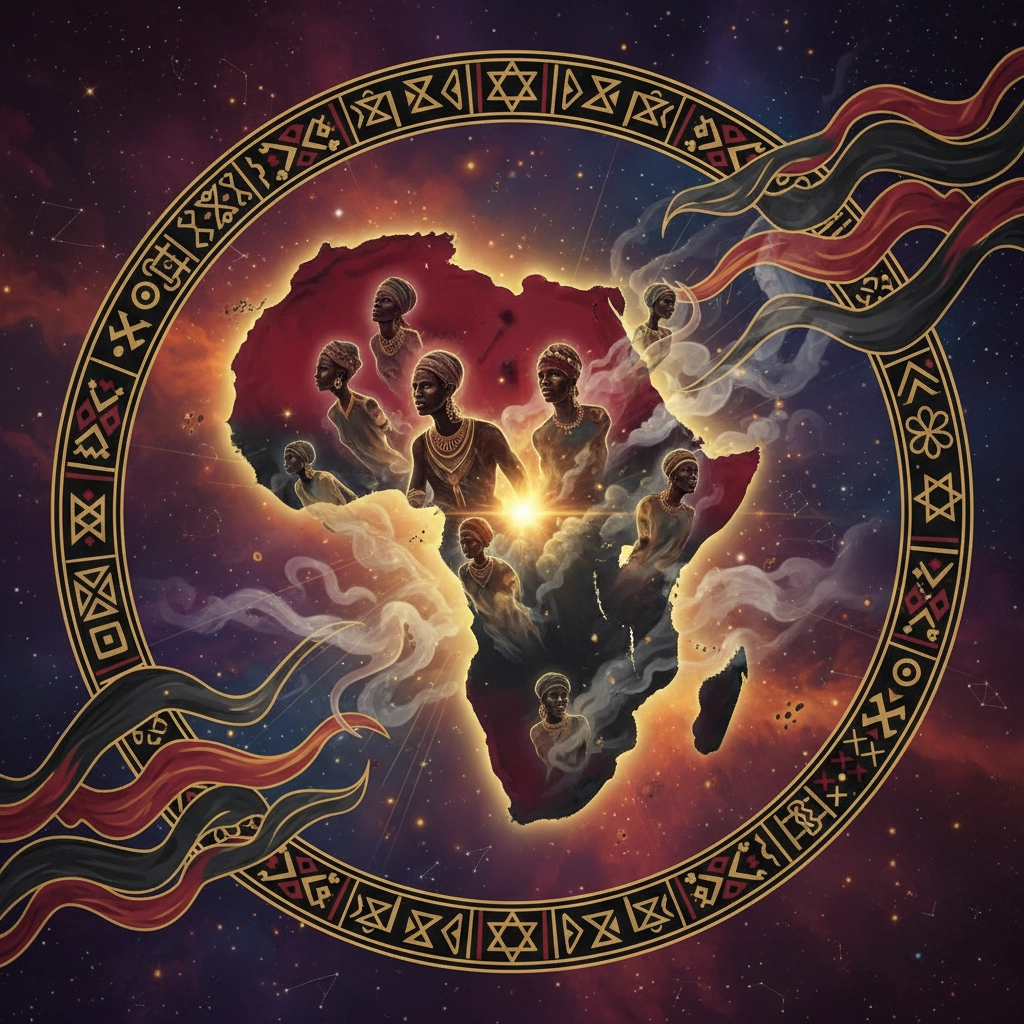
Thousands of African Americans made the pilgrimage. They walked through the Door of No Return at Cape Coast Castle, traced their DNA, learned African languages, and some even gained citizenship. This wasn't about claiming to be something they weren't: it was about reclaiming what was always theirs.
The Year of Return represented what healthy identity reclamation looks like: grounded in history, supported by documentation, and welcomed by the source community.
The 1619 Project and Contested Histories
The 1619 Project, launched by The New York Times, aimed to reframe American history around the consequences of slavery and the contributions of Black Americans. Like the Black Hebrew Israelite movement, it represented an attempt to center our narrative in historical discussions.
The project faced intense criticism and attempts at suppression, particularly in educational settings. The pattern is clear: when we attempt to tell our story from our perspective, highlighting our experiences and contributions, there's pushback.
Understanding the Fury
Why does our search for identity and historical truth provoke such intense responses? Perhaps because narratives of chosen-ness, of divine favor, of historical significance have long been used to justify certain groups' positions of power and influence.
When we begin to question these narratives, when we suggest alternative interpretations of history and scripture, when we center our own experiences and suffering as having cosmic significance: it challenges established orders.

The "fury" isn't really about religious doctrine. It's about power, about who gets to be special, about who gets to claim divine favor, about whose suffering matters in the grand narrative of human history.
The Path Forward: Unity Without Hate
Our search for identity and historical truth is legitimate and necessary. We have every right to explore our heritage, to question narratives that have excluded or marginalized us, to seek spiritual and historical frameworks that honor our experience.
But this search must be grounded in truth, not in hatred of others. We can celebrate our heritage without denigrating others. We can explore alternative historical narratives without embracing conspiracy theories. We can center our experience without negating others' legitimate claims to identity and belonging.
At Nagast Footwear, we understand this struggle. Our Genesis 15:13 collection acknowledges the biblical verses that speak to our experience while our Africa Unite collection celebrates our real, documented heritage on the African continent.
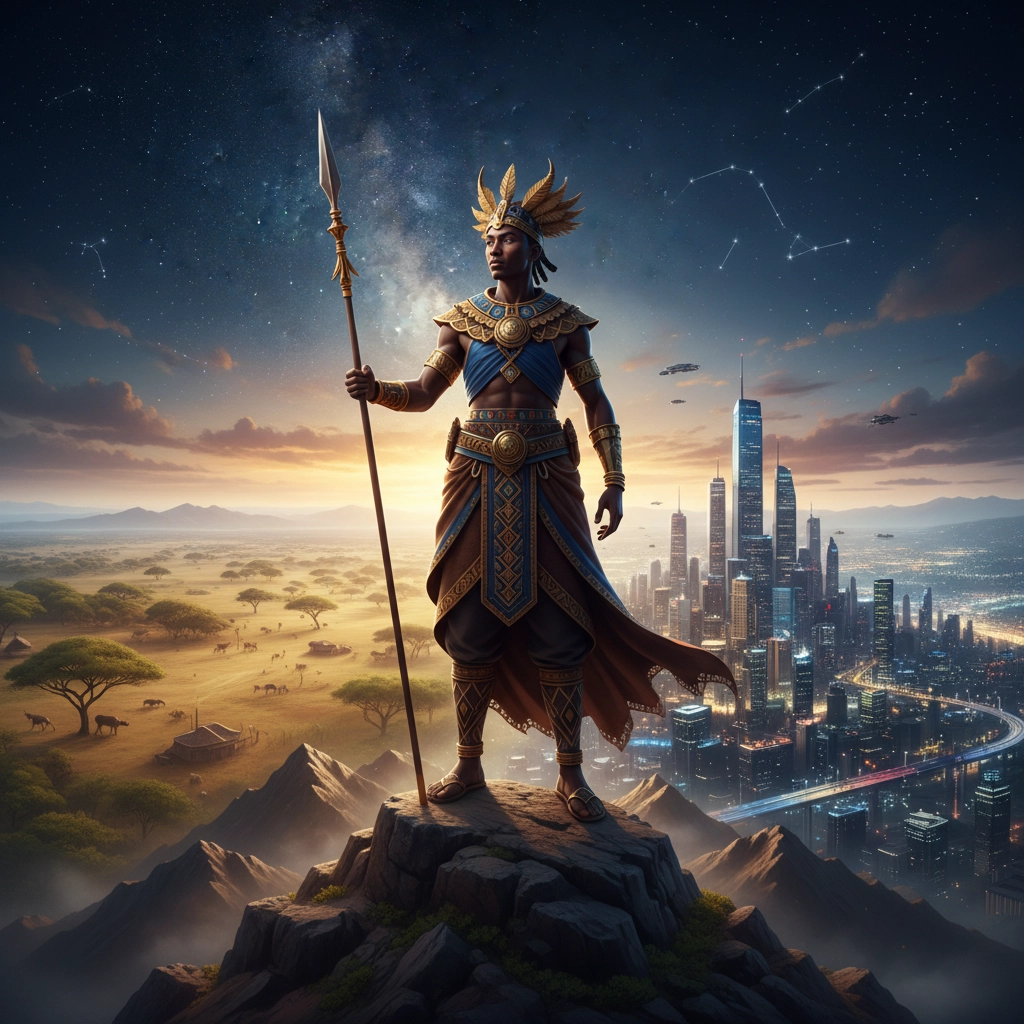
The Real Revolution
The real revolution isn't in claiming someone else's identity: it's in fully embracing our own. We are the descendants of the Akan, Yoruba, Igbo, Fulani, and hundreds of other African ethnic groups. We are the children of kingdoms like Mali, Songhai, and Ethiopia. We are the inheritors of mathematical, architectural, and philosophical traditions that shaped human civilization.
We don't need to be the biblical Israelites to be chosen. We don't need to claim Jewish heritage to be special. We are already extraordinary: as Africans, as survivors, as contributors to world civilization.
Our celebrities who've grappled with these questions aren't enemies of progress: they're searchers, like many of us. Their public struggles with identity reflect our collective journey toward understanding who we are in a world that has often told us we are nothing.
Moving Forward Together
The conversations sparked by Irving, West, Cannon, and others, while controversial, have opened important dialogues about identity, history, and our place in the world. Rather than shutting down these conversations, we should guide them toward truth and unity.
We can honor the pain that drives people toward alternative narratives while steering them toward healthier expressions of identity. We can validate the search for meaning while providing better answers. We can embrace our African heritage fully while building bridges with other communities.
The future isn't in competing claims of chosen-ness: it's in recognizing that we're all chosen, all valuable, all deserving of respect and dignity. Our liberation doesn't require anyone else's diminishment. Our rise doesn't require anyone else's fall.
We are African. We are powerful. We are enough.
Takeaway
- Keep searching for truth—don’t let nobody shame your hunger for roots.
- Let the art guide you: the music been naming our pain and our promise.
- Stand in your heritage with love, not hate. Build, heal, and move together.
